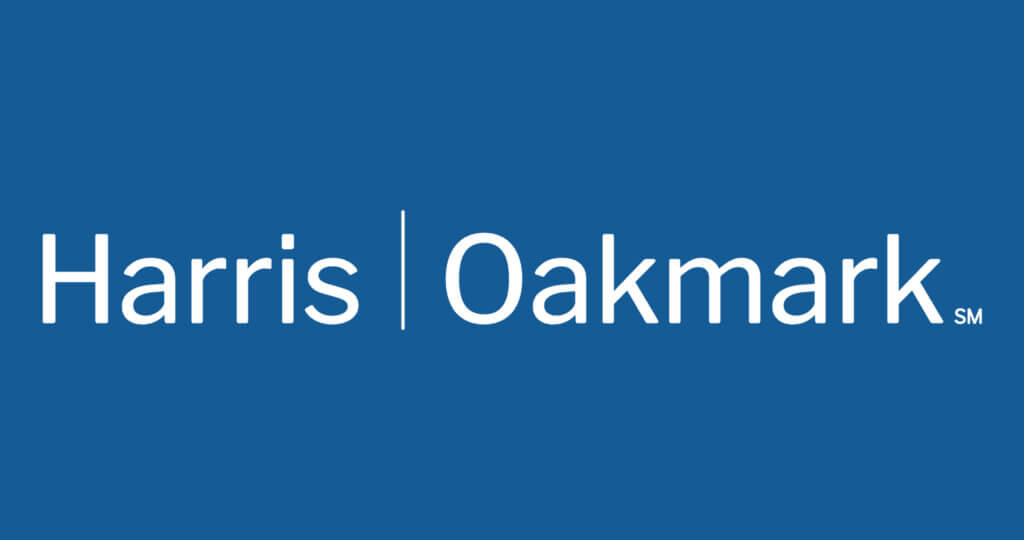Oakmark International Small Cap Fund - Investor Class
Average Annual Total Returns 12/31/15
Since Inception 11/01/95 9.34%
10-year 4.84%
5-year 3.26%
1-year 0.74%
3-month 1.84%
Gross Expense Ratio as of 09/30/15 was 1.35%
Past performance is no guarantee of future results. The performance data quoted represents past performance. Current performance may be lower or higher than the performance data quoted. The investment return and principal value vary so that an investor’s shares when redeemed may be worth more or less than the original cost. The performance of the Fund does not reflect the 2% redemption fee imposed on shares redeemed within 90 days of purchase. To obtain the most recent month-end performance data, view it here.
The Oakmark International Small Cap Fund returned 2% for the quarter ended December 31, 2015, underperforming the MSCI World ex U.S. Small Cap Index, which returned 6% for the same period. For the year ended December 31, the Fund was up 1% while the MSCI World ex U.S. Small Cap Index returned 5%. Since the Fund’s inception in November 1995, it has returned an average of 9% per year.
A top-performing stock for the quarter (and calendar year) was Japanese drugstore chain Sugi Holdings. We met with the president of Sugi on a recent trip to Japan and discussed how growth remains solid, the returns are very good and the board is returning to what we believe is the right balance of independent outside members. Sugi’s management team plans to invest in store expansions and logistic centers, as well as to commit existing stores’ floor space to wellness initiatives that are gaining popularity in Japan. We remain pleased with Sugi’s ability to drive results and are confident that the leadership team will continue to increase overall value in order to benefit shareholders.
Treasury Wine Estates (Australia), the world’s largest listed wine company, also significantly contributed to performance for the year (and quarter). As we indicated in our last letter, the company reported what we consider strong fiscal-year results in August, and they successfully resolved inventory issues in North America, allowing management to focus on growing the business. As a result, during the fourth quarter, the company announced they were acquiring wine assets from Diageo in the U.S. and Europe. The U.S. business acquired was the primary motivation for the deal. That acquisition brings a large inventory of wine, more than half of which comes from luxury and masstige grapes that generate 83% of the revenue in the U.S. These cases were sold under a number of brands that will also transfer to Treasury, and the company can now additionally use some of that high quality fruit to blend into its existing brands and expand capacity and margin. Another appeal of the U.S. business is that it is capital-light, as Treasury will own only 2% of the agricultural assets used to produce the fruit with the rest coming from long-term leases and grower contracts. In addition, the company expects to achieve cost synergies of at least $25 million and avoid $80 million of capital expenditure that would have been needed for a new bottling facility in the U.S. We believe this transaction will create additional shareholder value over time.
A large detractor in the Fund for the quarter and year-end periods was BNK Financial Group, a banking, securities and financial services provider in the southeast region of South Korea. BNK Financial Group’s third-quarter net profit was slightly better than market expectations. Its turnaround efforts for recently acquired Kyungnam Bank appear to be on track, as the net interest margin increased and helped results for the period. However, BNK announced a new 70 million rights issuance that will increase shares outstanding by approximately 27% and dilute the value of currently owned shares. This move surprised both the market and us, prompting a significant share price decline. While we find the rights issuance extremely frustrating, BNK’s strong competitive position, high levels of normal profitability and low valuation make this an attractive stock in our opinion.
During the quarter we initiated new positions in Element Financial, QIAGEN and SKY Network Television. Element Financial is a financial services company based in Canada. The company originates, funds and manages asset-based financings in Canada and the U.S., and it conducts fleet management operations in Mexico, Australia and New Zealand. Based in the U.S., QIAGEN provides solutions that make biological samples easier for researchers to see and analyze. New Zealand-based SKY Network Television is a pay television provider that offers about 100 channels via ultra-high frequency and digital broadcast satellite across the country. During the quarter, we eliminated our positions in Alten (France), Capcom (Japan) and Asatsu-DK (Japan).
Geographically, we ended the quarter with 20% of our holdings in Asia, 60% in Europe and 13% in Australasia. The remaining positions are in North America (Canada and the U.S.), Latin America (Brazil) and the Middle East (Israel).
While the U.S. dollar strengthened over the year, we still maintain hedge positions on two of the Fund’s currency exposures. As of the most recent quarter end, the Fund’s Australian dollar hedge was 11% and the Swiss franc exposure was 22%.
We thank you for your continued confidence and support, and wish all of you a very happy and healthy 2016!
The holdings mentioned above comprise the following percentages of the Oakmark International Small Cap Fund’s total net assets as of 12/31/15: Sugi Holdings Co., Ltd. 2.7%, Treasury Wine Estates Ltd. 1.3%, Diageo PLC 0%, BNK Financial Group, Inc. 2.3%, Kyongnam Bank Co., Ltd.0%, Element Financial Corp. 1.5%, QIAGEN NV 0.2%, Sky Network Television Limited 0.9%, Alten, Ltd. 0%, Capcom Co., Ltd. 0%, and Asatsu-DK, Inc. 0%. Portfolio holdings are subject to change without notice and are not intended as recommendations of individual stocks.
Click here to access the full list of holdings for The Oakmark International Small Cap Fund as of the most recent quarter-end.
The MSCI World ex U.S. Small Cap Index (Net) is a free float-adjusted market capitalization index that is designed to measure global developed market equity performance, excluding the U.S. The MSCI Small Cap Indices target 40% of the eligible Small Cap universe within each industry group, within each country. MSCI defines the Small Cap universe as all listed securities that have a market capitalization in the range of USD200-1,500 million. This benchmark calculates reinvested dividends net of withholding taxes using Luxembourg tax rates. This index is unmanaged and investors cannot invest directly in this index.
The stocks of smaller companies often involve more risk than the stocks of larger companies. Stocks of small companies tend to be more volatile and have a smaller public market than stocks of larger companies. Small companies may have a shorter history of operations than larger companies, may not have as great an ability to raise additional capital and may have a less diversified product line, making them more susceptible to market pressure.
The percentages of hedge exposure for each foreign currency are calculated by dividing the market value of all same-currency forward contracts by the market value of the underlying equity exposure to that currency.
Investing in foreign securities presents risks that in some ways may be greater than U.S. investments. Those risks include: currency fluctuation; different regulation, accounting standards, trading practices and levels of available information; generally higher transaction costs; and political risks.
The discussion of the Fund’s investments and investment strategy (including current investment themes, the portfolio managers’ research and investment process, and portfolio characteristics) represents the Fund’s investments and the views of the portfolio managers and Harris Associates L.P., the Fund’s investment adviser, at the time of this letter, and are subject to change without notice.







